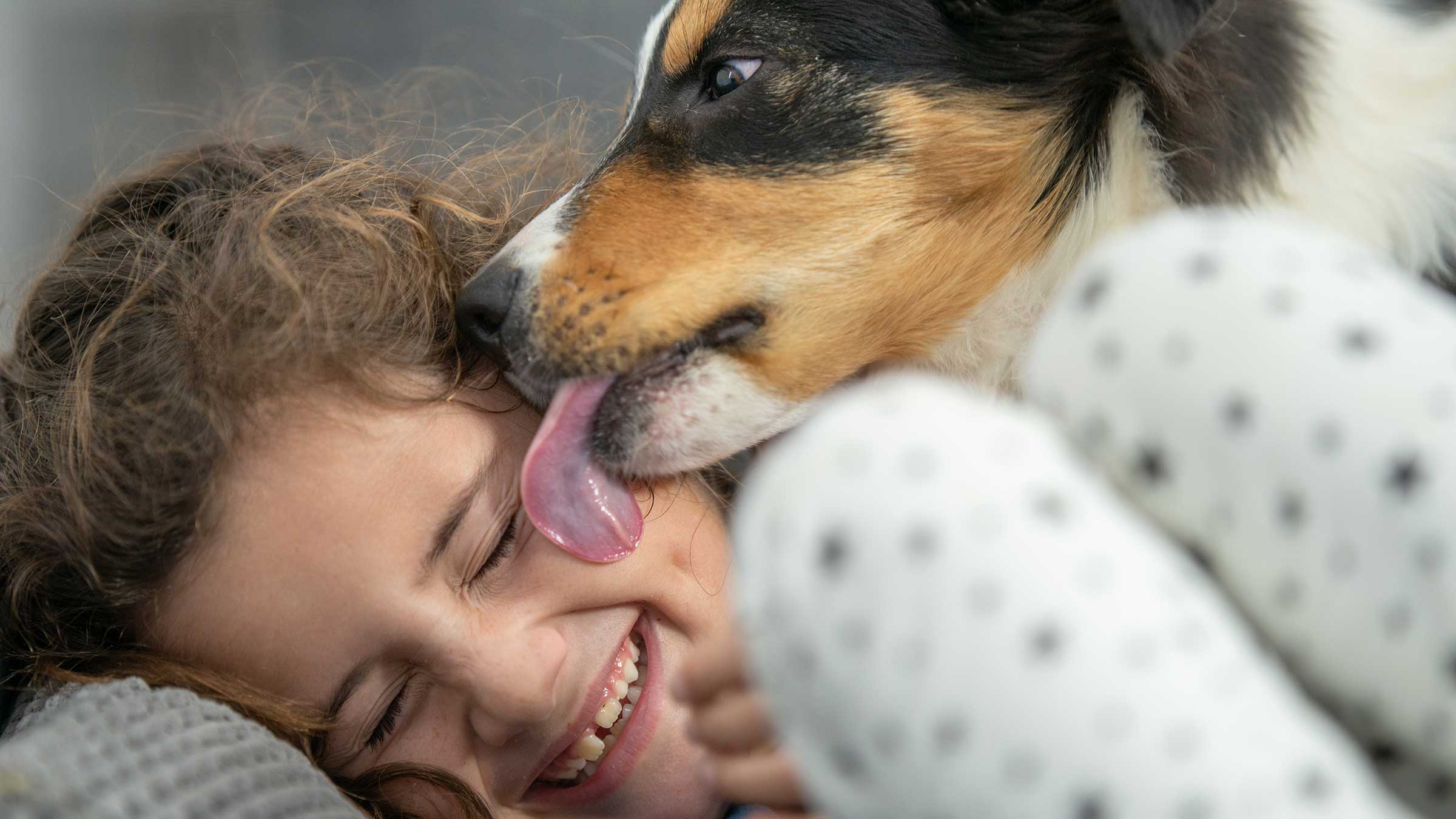
Loving our dogs sometimes means sharing our beds with them and letting them lick our faces. We pet them, hold them and cuddle them, all of which have a huge benefit for both us and them.
Seldom do we think about the risks that can come from being so close — the same risks of being physically close to other people. Dogs carry germs. They’re in their saliva, in their poop and urine, and on their fur.
So, when we pet them or pick up their poop, or they bite or lick us, if we’re not careful, we can catch various illnesses from the bacteria, viruses or fungi they could be carrying. This is especially important for people at high risk: children under 5, adults over 65, pregnant women and anyone with a compromised immune system.
In many cases, dogs won’t show signs when they’re infected with one of the more than 70 bacteria, viruses or other organisms they can pass along to us. That’s the tricky part. So, when you’re playing with a puppy, petting its floppy ears, you’re probably not thinking about whether you’ll catch anything. And yet, puppies under six months carry a lot of germs because their immune systems aren’t fully developed.
Some of the most common diseases dogs of all ages can pass along to people include:
Salmonella, a bacterial disease that dogs can get from eating uncooked meat, eggs or treats.
Campylobacter, a bacterial disease that causes diarrhea (often bloody), fever and stomach cramps. Puppies are more likely to spread it than older dogs.
Ringworm, a skin infection caused by a fungus that often appears as a ring-shaped rash on the skin.
Rabies — though the viral disease is not common in people in the United States, about 100 dogs in our country die every year from rabies. Worldwide, 50,000 people die from rabies annually.
Toxocariasis, an infection caused by a dog parasite that’s passed in dog poop. The disease can cause fever, coughing, eye problems and liver inflammation.
Tick-borne diseases, such as Lyme disease. Blacklegged ticks infected with Lyme disease can hitch a ride on dogs’ skin or fur and come into contact with people and transmit the disease that can cause serious illness in people.
Dogs generally don’t get colds, flu, norovirus or rotavirus that they can then pass on to people.
Illnesses we can pass along to our dogs
The germs that cause sicknesses in dogs don’t just move in one direction. You can inadvertently infect your dog with your illness, though there are far fewer predominately human illnesses known to be infectious to dogs. The key ones that can be passed on to dogs include:
MRSA (Methicillin-resistant Staphylococcus aureus) infection, which is caused by a type of staph bacteria that affects people and dogs. In both, it causes skin infections as well as other symptoms.
C-diff (Clostridioides difficile), a bacteria that’s a common cause of diarrhea in people in the United States and can cause illness in dogs.
Typically, people are more cautious about keeping their dog from getting sick than about protecting themselves from catching their dog’s illness. There are ways you can do both. These steps are especially important for higher risk people, but everyone will benefit:
- Wash your hands after you’ve had contact with a dog, especially before eating, drinking or touching your face. Wash any bites or scratches with soap.
- Don’t let your dog lick your face, open wounds or medical devices.
- Keep your dog healthy with regular visits to a veterinarian.
- Frequently wash your dog’s bedding.
- Don’t feed your dog uncooked meat, eggs or treats such as pig ears.
- Use tick and worm prevention products.
- Take extra precautions around puppies.
- Spay and neuter your dog, making it less likely to roam and come into contact with certain diseases.
Keeping your dog up to date on vaccinations is important. But even if your dog is fully vaccinated, you still need to be cautious because there are no vaccinations for the majority of illnesses that dogs can pass along to people.
No one wants to think about their dog as a germ-carrier. But following a few key precautions will keep healthy everyone in your household — those with two legs and the others with four.

Compassionate, cutting-edge care for pets and animals
At The Ohio State University Veterinary Medical Center, our top priority is making the world healthier for animals and the families who love and care for them.
Learn more about our services



